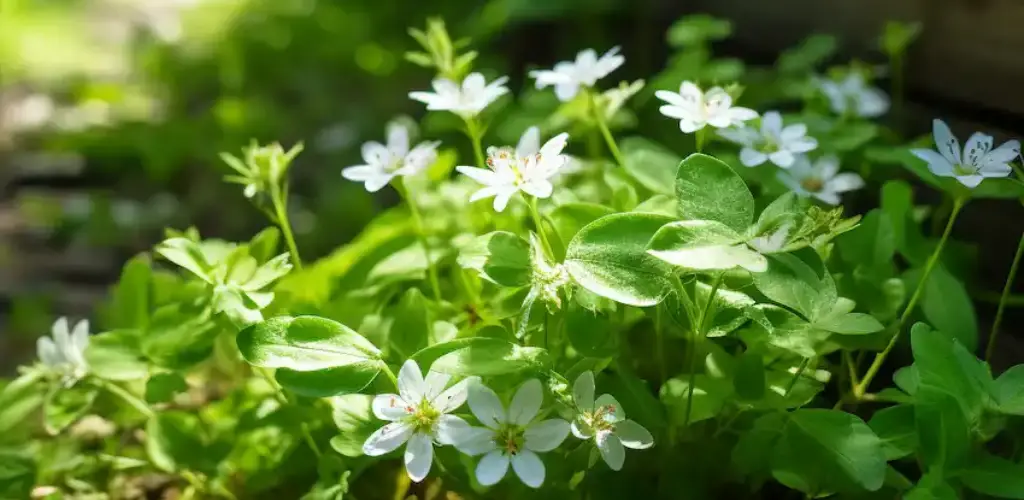
Chickweed or Stellaria media, a humble but powerful plant that is often overlooked, is a treasure trove of health and medicinal benefits waiting to be discovered. This versatile herb, with its delicate white flowers and bright green leaves, is not only a common sight in gardens and meadows, but also an effective natural remedy based on centuries of traditional use and modern research. In this article, we’ll delve into the countless benefits that chickweed offers, from its nutritional value to its healing properties, and examine how this unassuming plant can be a significant addition to holistic wellness practices. Whether used in teas, ointments or culinary creations, chickweed proves to be a natural wonder that offers solutions to various health problems while highlighting the importance of nature’s gifts in our daily lives.

Chickweed Near Home
Health and Medical Benefits of Chickweed
Nutritional Support: Chickweed is rich in nutrients such as calcium, magnesium, vitamin C and vitamin A and contributes to overall skeletal and skin health.
Anti-inflammatory and analgesic: Traditionally used in homeopathic and traditional medicine, chickweed can relieve symptoms associated with rheumatism, arthritis, PMS and various digestive and respiratory ailments. It can be taken as a tea, tincture, or applied topically to inflamed joints or skin areas.
Digestive and gut health: With its antioxidant properties, fiber content and natural diuretic properties, chickweed supports digestive and gut health. It can also help you lose weight by affecting intestinal absorption of fats and carbohydrates.
Skin Health: Chickweed is known for its ability to treat skin conditions such as eczema, psoriasis, rashes and more thanks to its anti-inflammatory, astringent and emollient properties. It can be used in various forms such as ointments, teas and tinctures to soothe the skin.
Respiratory health: The saponins in chickweed act as natural expectorants and help treat coughs, colds, sinus congestion and bronchitis.
Wound Healing and Antiseptic Properties: Chickweed has a positive effect on wound healing, reduces irritation and prevents infection when applied to cuts, burns and abrasions.
Lymphatic and Immune Support: Chickweed contains compounds such as coumarin and may have positive effects on the lymphatic system and overall immune health.
Using Chickweed
a cup of chickweed tea
Chickweed can be incorporated into the diet or used as a remedy in a number of ways:
Infusions or teas: For internal use, especially to improve digestion and the respiratory system.

Topical uses: As a poultice, ointment or compress for skin diseases and joint pain.
Culinary Uses: Fresh leaves can be added to salads, soups, and other dishes for a nutritional boost.
Safety and Precautions
Although chickweed is generally safe, it should be used with caution:
Pregnancy and breast-feeding: Due to limited safety data, use is not recommended during pregnancy and breast-feeding.

Allergic reactions: Some people may experience contact dermatitis or gastrointestinal distress from chickweed, particularly those who are allergic to plants in the Asteraceae family.
Dosage: It is important to follow recommended dosages, especially when consuming chickweed as a dietary supplement.
Sustainability
Chickweed is not endangered and is easy to cultivate, making it a sustainable option for anyone interested in herbal remedies.
Chickweed in a Jar
Chickweed provides a range of health benefits, particularly for skin, digestive and respiratory health. When used correctly, it can be a safe and effective natural remedy. However, it is important to be aware of possible side effects and to use chickweed responsibly, especially when it comes to dosage and during pregnancy and breastfeeding.
Inspired by that? Share the article with your friends!
